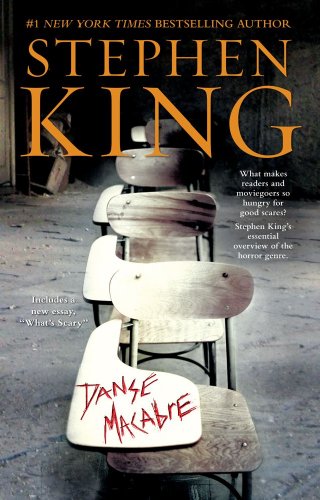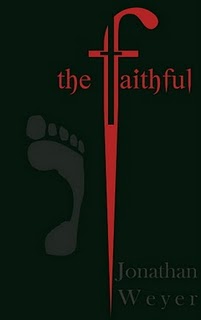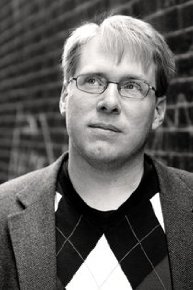If you follow Hearts & Minds, you know that we enjoy books about popular culture and believe it is important to encourage reading about faithful living in our ordinary, “secular” lives. We believe that God cares about all of life, including the mediums and art-forms all around us, whether hip-hop fashion, popular music or graphic novels. Such art can not only enhance our lives (and our awareness of the human condition) but can be seen as windows into the values and life orientation of the artist. Sometimes, art (from high opera to comic books, serious literary fiction to popular video games) can reveal much about our cultural moment, the zeitgeist. We are thrilled when people of faith have these sorts of conversations, sometimes even asking foundational questions about what we mean by “culture” or “popular culture” or entertainment and so forth.
And so, we especially love books like William Romanowski’s stellar Eyes Wide Open: Finding God in Popular Culture (Brazos Press) which I see as nearly a H&M classic, or the fabulous, wide-ranging, interesting and well-written recent collection The Day Metallica Came to Church: Searching for the Everywhere God in Everything by John Van Sloten (Square Inch Books) or the very provocative Prophetically Incorrect: A Christian Guide to Media Criticism by Robert Woods and Paul Patton (Brazos.) Halos and Avatars: Playing Video Games with God edited by Craig Detweiler (Westminister/John Knox Press) is a rigorous Christian study, not for the casual player, but rewarding for anyone interested in integrating faith and the study of contemporary culture. You may recall that we gave a lengthy review a few weeks ago to the wonderfully produced Saving Leonardo by Nancy Pearcey (Broadman) which gives a very sophisticated treatment to the ideologies and worldviews of the romantic movement and the subsequent shift in the meaning of modern art.
to Church: Searching for the Everywhere God in Everything by John Van Sloten (Square Inch Books) or the very provocative Prophetically Incorrect: A Christian Guide to Media Criticism by Robert Woods and Paul Patton (Brazos.) Halos and Avatars: Playing Video Games with God edited by Craig Detweiler (Westminister/John Knox Press) is a rigorous Christian study, not for the casual player, but rewarding for anyone interested in integrating faith and the study of contemporary culture. You may recall that we gave a lengthy review a few weeks ago to the wonderfully produced Saving Leonardo by Nancy Pearcey (Broadman) which gives a very sophisticated treatment to the ideologies and worldviews of the romantic movement and the subsequent shift in the meaning of modern art.
There are even a few recent books which bring Christian insight to the vampire phenomenon, most helpfully Touched by a Vampire: The Hidden Message in the Twilight Saga by Beth Felker Jones (Waterbrook; $13.99 ) written by a thoughtful theology professor from Wheaton College. It does not condemn the books outright, but neither does it merely accept them as an opportunity for fun escape. (Neither does it “Christianize” the themes, as some might, suggesting that the well-portrayed longing for love in Twlight can be used to discuss with young women about how Christ being a passionate hero.) Rather, Ms Jones is sharp, thoughtful, and raises important concerns, especially about gender and romance as portrayed in the popular novels and films. As one who loves book blurbs, it strikes me as a delight to see popular level evangelical YA novelist Melody Carlson endorsing Touched… right next to Duke Divinity School professor and feminist ethicist, Amy Laura Hall. Right on!
(It may be self-evident, but you surely can understand what I am getting at by considering the good-but-distorted topic of human sexuality: even erotic literature can have a divine stamp–think of the Song of Songs in the Bible, at least—but it has also so obviously been abused by forces of advertising and pornography. To find a sexually pure story these days is rare, but, in principle, we must not “throw the baby out with the bathwater.” All of life is made good by God and all can be seen in proper, normative ways. To hate the vile porn of the internet isn’t to say that the topic of human love or sensuality is itself wrong, or that we ought not use the internet. Right? Think, too, of the gross violence of slasher movies or the unacceptable blood-lust portrayed in graphic games and movies these days. Still, shall we sanitize all war movies or refuse to read accounts of human sinfulness in novels and plays? I think you get the point, that there are proper and improper, relatively healthy and unhealthy ways for the arts to portray the ugly sides of the human condition. Some religious readers tend to want to avoid any such “realism” while others just suck up whatever the culture has to offer, failing the “transformed mind” command of the down-to-earth, daily spirituality of Romans 12:1-2.)
Thoughtful, intentionally Christian, engaged, critical. In-but-not-of, as Jesus suggests in John 17. Each of these favorite books (listed above) in their own way invite us to both enjoy, and to be faithful in our consideration of, various forms, genres, and works of popular art and entertainment. Each presumes something good about God’s world that is fun to explore and healthy to appreciate, even as we are aware that every arena is most likely twisted or distorted by ungodly assumptions, views, attitudes or approaches.
CHRISTIAN HORROR STORIES?
So, then, what might a Christian approach to horror, be? Of course not all of us appreciate strong thrillers, let alone the creepy stories of ghosts and the paranormal. There are those who have explored this with lucidity and depth, such as Douglas Cowen, in Sacred Terror: Religion and Horror on the Silver Screen (Baylor University Press.) There is something very human, something appropriate, indeed, something theologically sound, about recognizing evil, and attending to the possibilities of the grotesque. Like the aforementioned topics of sex or violence, there is a way to be faithful in our approach to this genre of story. That is, perhaps there is a Christian viewpoint, a set of appropriate habits of heart and mind, and some learned literary practices, that might allow us to enjoy (within limits) our odd interests in being scared.
My friend Jonathan Weyer has consider this a lot. As a seriously orthodox theological thinker and writer (and ordained EP pastor) he has wondered about, and done workshops on, the reasons humans have this fascination with the eerie; he often suggests as a very helpful book, the classic non-fiction work of literary criticism by Stephen King called Danse Macabre (Pocket Books; $17.00) which was based on a course he taught on the role of the supernatural in literature. It explores in very profound ways this very stuff and has gotten raves from those who have read it. (“Charming” one reviewer even called it.) Indeed, the Philadelphia Inquirer called Mr. King’s Danse Macabre “one of the best books of popular culture of the late twentieth century” while the Washington Post wrote that it was “a labor of love.”
and writer (and ordained EP pastor) he has wondered about, and done workshops on, the reasons humans have this fascination with the eerie; he often suggests as a very helpful book, the classic non-fiction work of literary criticism by Stephen King called Danse Macabre (Pocket Books; $17.00) which was based on a course he taught on the role of the supernatural in literature. It explores in very profound ways this very stuff and has gotten raves from those who have read it. (“Charming” one reviewer even called it.) Indeed, the Philadelphia Inquirer called Mr. King’s Danse Macabre “one of the best books of popular culture of the late twentieth century” while the Washington Post wrote that it was “a labor of love.”
THE FAITHFUL
Informed by King and others, Rev. Weyer understands how our interest in terror is related to our own experience of (or suppression of) terror. Out of his intentionally Christian vision, this subterranean worldview informed by his solid Calvinist leanings, Weyer starting working on his own novel. A horror novel, in fact, about murder, mayhem, and all manner of mischief. It is about a conservative Presbyterian pastor (more anon) who has to reconsider his own worldview (not to mention his love life) as he experiences hauntings and eventually the demonic. Yes, the new novel The Faithful (Brio Press; $14.95) is a “dance macabre” as the young protagonist not only is dr
awn into the investigation of a ritual murder, but comes to meet a cast of characters ugly and wise, sexy and violent, thoughtful and brave. I don’t mean to suggest that Weyer has given us a full parade of the corrupt and virtuous, but there really are an interesting set of folks here. I enjoyed them, and was struck by some quite a lot.
 I do not read much truly horrific stuff; perhaps you don’t, either. I am sure there are books that are much more grisly and much more scary. Some verge into the pornographic, but Weyer’s The Faithful does not. It is upbeat at times, a bit funny, fairly realistic, and a captivating ride into a deepening look into, or an opening up of, what some call “the dark side.” Ghosts, hauntings, occultic connections, exorcism? From the mild to the horrific, it is here. What a ride. What insight into the world as it is, the good, the bad, and the truly ugly. Library Journal, an important review source, just gave it a coveted “starred review.” Not bad for a first novel!
I do not read much truly horrific stuff; perhaps you don’t, either. I am sure there are books that are much more grisly and much more scary. Some verge into the pornographic, but Weyer’s The Faithful does not. It is upbeat at times, a bit funny, fairly realistic, and a captivating ride into a deepening look into, or an opening up of, what some call “the dark side.” Ghosts, hauntings, occultic connections, exorcism? From the mild to the horrific, it is here. What a ride. What insight into the world as it is, the good, the bad, and the truly ugly. Library Journal, an important review source, just gave it a coveted “starred review.” Not bad for a first novel!
Here is a brief interview with JW, found at Susan Isaacs hilarious Gray Matter website. Here is his own website, for more info, there, too. If you haven’t seen it on facebook or twitter, you’ll see my goofy video clip, shouting out a bit about the book. Talk about a horror show!
Interestingly, and importantly, Jonathan is a campus minister with the widely-respected Coalition for Christian Outreach (CCO) (and will be doing a workshop on this stuff at their Jubilee 2011.) Much of his time is spent in conversation with the large atheist community at Ohio State in his home town of Columbus Ohio. (Weyer gets the Ohio scenes right in The Faithful, too; he has researched well the geography, culture, and new age/paranormal legends in that region, giving the book an authentic feel.) Perhaps he will someday write a non-fiction book about his ministry with those firmly outside of the church; he has some great stories about his friendships with these assertive, new atheists whom he has come to know and respect. Now, though, we can see a bit of his awareness of the new crop of new atheists as the main character in his novel, Adian Schaeffer, an associate pastor of a conservative church, has been reading Dawkins and Dennett. Adian has come to disbelieve in the supernatural. As the story begins, he is nearly depressed, deeply conflicted about his relationship to the church, thinking about how to break the news to his very evangelical congregation: a preacher who no longer believes in God? How can he tell them? Of course, the fictional Adian realizes that he lacks integrity as he pretends to believe, going through the ministerial motions, and intends to own up and quit his parish job. But then his fiance breaks up with him, she is murdered, and he becomes a suspect. The young Schaeffer panics as he enters the investigation, experiences an increasingly volatile spiritual battle, and eventually meets a pastoral leader who is as wise as he is cryptic is discerning the truth of what is really going on. Whew, what a drama, what a surprise, what a story!
The Faithful, is, then, a great read, a fun, moderately suspenseful, murder mystery. It ends up being about apologetics and truth, about the gospel and hypocrisy, about the supernatural and the realities of spiritual warfare. It is a story of a quest, of love lost, and of a redemptive perspective on the realities of evil in our fallen world. Oh, and did I say? It is a fun, great, read. That is, it isn’t too didactic and the plot isn’t merely a device for spiritual teaching. Nope, this is the real deal: a horror story, with “sacred terror” and a good bit of enjoyable storyline, well written, lively, entertaining, and provocative.
WANT AN AUTOGRAPHED COPY?
 We have Jonathan Weyer doing a presentation at our shop Friday night, December 3rd, at 7:30. He’ll tell us a bit about his views of a sanctified imagination and why it is good for Christians to appreciate the horror genre. He’ll tell us a bit about his own fascination with the paranormal and ghost stories and the like, and perhaps share a bit about how the book came to be written. (No, it isn’t autobiographical. He’s not a closet atheist, although he has read Dawkins and Dennet, and he has not been a suspect for murder. I don’t think he has a dog named Bishop and I don’t think he’s ever met a disciple of Charles Williams, as does Adian in the book.)
We have Jonathan Weyer doing a presentation at our shop Friday night, December 3rd, at 7:30. He’ll tell us a bit about his views of a sanctified imagination and why it is good for Christians to appreciate the horror genre. He’ll tell us a bit about his own fascination with the paranormal and ghost stories and the like, and perhaps share a bit about how the book came to be written. (No, it isn’t autobiographical. He’s not a closet atheist, although he has read Dawkins and Dennet, and he has not been a suspect for murder. I don’t think he has a dog named Bishop and I don’t think he’s ever met a disciple of Charles Williams, as does Adian in the book.)
Jonathan will not only speak a bit about his views of a theologically-informed view of the horror genre, but will read from The Faithful. He’ll autograph books, of course, and if this handsome (black and red) paperback might appeal to any friends of yours, just give us a name, and he’ll inscribe it. (You have to let us know by Friday night, of course.) Or, we can just get the book autographed. Autographed copies make nice gifts, eh? Maybe this will help you build a bridge of conversation with that person you wanted to chat with about faith, but just didn’t know how to bring it up.
PRAY
Please say a prayer for us while your reading this. Even though it will be a fun evening, and Weyer is a solid, mature, Christian leader, whenever one starts talking about the occult, or imagining scenes of spiritual warfare, it would be naive to think that such talk has no consequences. And we are not unaware that novels about murder or loss of faith can be painful for some. We ask that God in His mercy, and Christ in His victorious power, and the Holy Spirit in great wisdom, guides us as we explore important themes, good books, fun reading, and, in faithful ways, how to be “in but not of” the worlds of our popular cultures, even in this world of contemporary fiction. Join us if you’re around central PA, and pray for us if you can. And order a book or two. Thanks.
order here
takes you to the secure order form page
inquire here
if you have questions or need more information
Hearts & Minds 2345 East Main Street Dallastown, PA 17313 717-246-3333
